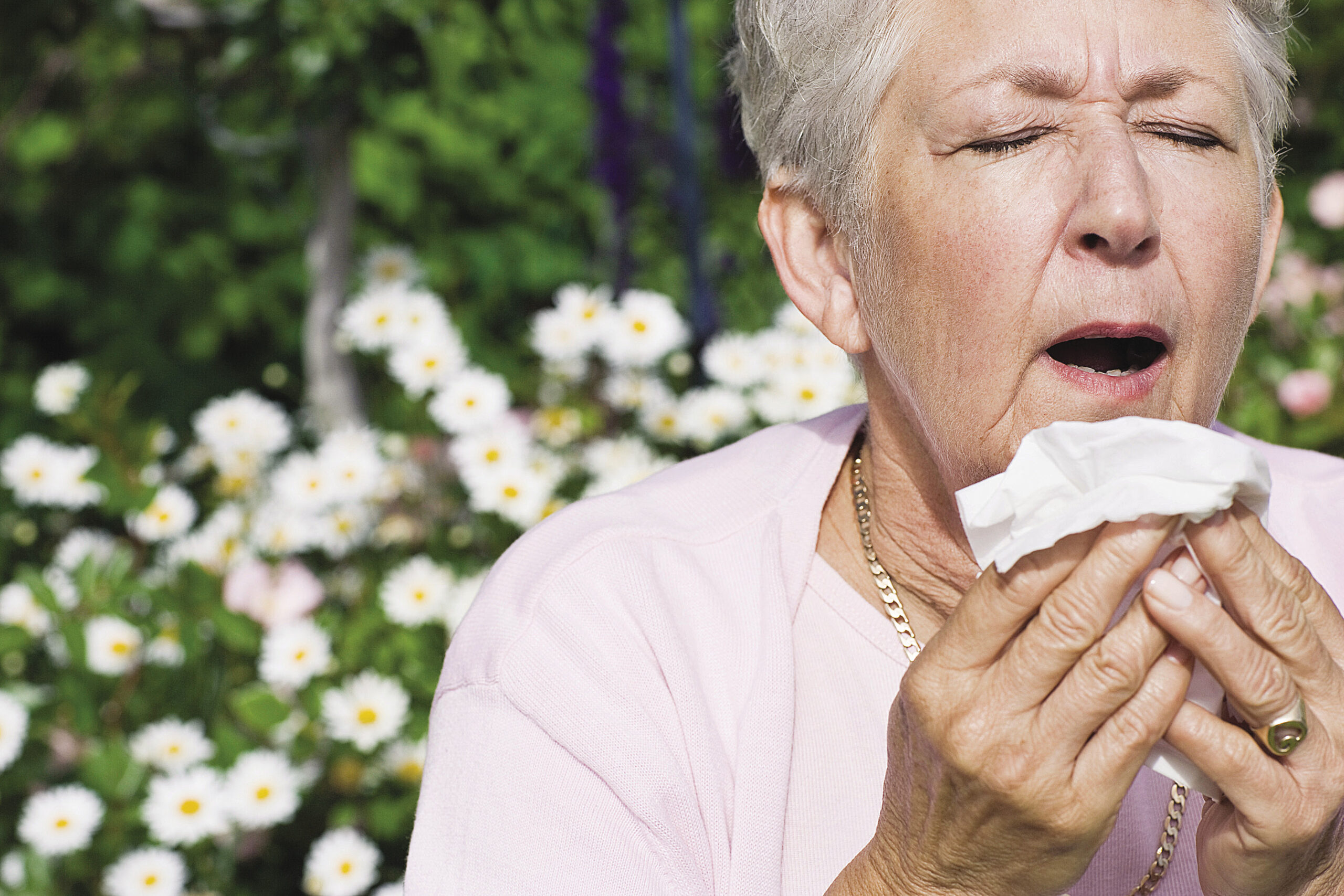After a long winter, mild spring days and budding trees are a welcome sight. But for some people, spring brings the dreaded allergy season. A common topic this time of year, allergies can be a real problem for people year-round. They can exist not only as a reaction to the pollens during the warmer months, but also as a result of exposure to molds, dust, pet hair, chemicals and foods. The good news is that common acceptance of allergies as a chronic condition is being challenged. Although incredibly complex and sometimes genetically determined, chronic allergies are not conditions in which any one should have to suffer. As any allergy sufferer can attest, symptoms can be intolerable, but natural solutions can help minimize suffering.

To discuss allergies you must first discuss the immune system. The immune system exists to protect you from foreign invaders that can lead to possible illness. In a healthy system, food, for example, is recognized as “good,” therefore your body processes and utilizes it to run its systems. Viruses are recognized as “bad” and attacked and eliminated. When a person has an allergic reaction, the immune system is responding inappropriately to something that is not necessarily harmful to the body. This relatively neutral foreigner causes the over-reactive immune system to release chemicals, such as histamines, that result in an inflammatory response. The release of these chemicals by an over-responsive immune system primarily affects the skin, mucous membranes, lungs and gastrointestinal tract. This can result in itchy and watery eyes, congested sinuses and skin reactions, and in some cases, loss of energy, mood swings, headaches and abdominal distress.
Allergic responses can be complex. Current research shows that many allergic reactions cannot be wrapped up in a neat little box. Allergies are messy and a diagnosis of an allergy to one thing rarely leads to relief. Chemicals in our food and in the air, stress, lack of sleep, and exercise all play a role in how our immune system behaves. Making it a point to keep stress levels low, get proper rest, exercise and eliminate exposure to chemicals can have a significant effect on how your immune system reacts to the world around you. Here are some other ways to keep those allergies at bay:
The most important thing you can do for yourself is change the way you eat, not just for food allergies, but for all allergies. Every five years our government releases a set of new dietary guidelines based on evidence from current research. This year’s guidelines included the minimization of sugar consumption and a change in status on the health benefits associated with eggs. But among the new research it was stated that although adherence to dietary guidelines is recommended, every individual needs to take responsibility for their own reaction to food. Every piece of food and every beverage you drink elicits a response. Being mindful of how our body responds to what we consume is paramount to optimal health, and can help those suffering from allergy symptoms. Diets that will help strengthen your immune system and minimize the symptoms caused by allergic reactions include the adoption of these simple changes:
• Eat whole, unprocessed foods
• Eat a variety of different foods
• Rotate the foods you eat
• Be mindful of how you react to certain foods
Current research is beginning to reveal the great relief acupuncture can bring to both the causes and effects of allergies. Two recent studies, one in Germany and one on children, both revealed a significant reduction in symptoms, and in some cases, several symptom-free days for those who underwent acupuncture from a trained professional. Body work, such as cranial sacral massage and chiropractic adjustments have also proved effective at providing relief for allergy sufferers.
Homeopathics often get confused with natural remedies. Homeopathic medicine is a practice that takes a very small and very diluted dose of an item, that in very large doses, results in the ailment you are trying to prevent. Similar to vaccinations where you are given a small dose of the virus you are trying to prevent so that your immune system can build antibodies and similar to allergy shots. Allergy shots are a form of immunotherapy: one or several allergens are recognized as an issue and then treated by injecting small amounts of that allergen, slowly increasing the dose over time. The intended result is to desensitize the immune system—help it to recognize the allergen without overreacting to it. Homeopathy follows these same principles, making it an effective and safe natural remedy for allergy sufferers.
Eastern societies view allergies (and all ailments in general) as an imbalance of energies and organ systems. Here, we narrow it down to one system: an overactive immune response. Both are true. Approaching the body as a whole is the best way to give your body what it needs. Eating healthy, keeping stress levels low and getting proper rest and exercise can all help balance energies, keep organ systems healthy and help maintain an optimally functioning immune system.




